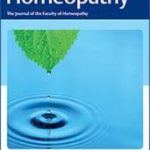Harald Walach, Paolo Roberti di Sarsina, Mariateresa Tassinari
Data about (complementary and alternative) medicine are irrelevant, because we are all Bayesians
Eur J Int Med, 2015
Pandolfi and Carreras are to be congratulated on their argument in favor of a Bayesian view on medical decision making and statistics [1]. The authors rightly point out that, given a mildly skeptical stance, even a strongly significant result of a research experiment won't convert this into acceptance or security. What the authors say is much more general and pertains to the whole of medicine, not only to CAM.We are all Bayesians, because neurobiologically we are prediction engines using disconfirming evidence only if it is strong enough to question our predictions [2]. And this is the reason, why a constructivist approach to human perception, memory and, for that matter, science is biologically and factually more adequate. Science is constructive as well [3]. Hence it is wrong to assume that science âdiscovers the truthâ? about the world. Pandolfi and Carreras are Bayesians and constructivists, when it suits their needs, but else conform to a positivist view of science. You can't have it both ways. If you accept that we construct the view of our world, you should stick to it and accept that there are multiple ways of looking at things, even at medicine. And this means: Bayesian principles should be radically applied to all of medicine, not just to CAM. What we call âevidence based medicineâ? should rather be called a âresearch trend based medicineâ? that considers only one type of data and one type of theory as a priori plausible while ignoring the rest. That leads to a host of very expensive and very dangerous errors.-----Here is an example, selective serotonin inhibitors (SSRIs): We have a good scientific working model, i.e. the science requested by Pandolfi and Carreras, why and how SSRIs should work, and a host of basic science finding. SSRIs have all received registration. Only, their effect sizes were vastly overestimated, mainly due to publication bias and a strong placebo component [4] and [5]. And it turns out that the side-effects, mainly an increased suicide rate, ruined sex lives and metabolic syndromes, have been hidden from the authorities to make them acceptable in the first place [6]. The a priori hypothesis was reasonable, but wrong, as we now know [7]. Thus, âscienceâ? is a poor guide, when it comes to treatment and clinical application. A lot of good science never translates into clinical applicability. And a lot of good clinical applications have very poor science behind them, not only in CAM.Is science then, as supposed by Pandolfi and Carreras, a good guide to construe the proper a priori odds in the case of CAM or medicine, for that matter? No it is not. The translation from science into clinic has a very poor track record. This is so not because science is wrong, but not good enough to understand the enormously complex system that the human being turns out to be. And it is not good enough, because the abstractions and models science works with do not depict âthe truthâ?, but are only useful abstractions that are useful from one vantage point, but useless from another. The current model of the organism as a complex biological machine is useful for fixing acute problems, but comparatively useless to treat and understand complex, long-term, chronic diseases that can only be treated properly when analyzed as complex systemic failures.Pandolfi and Carreras assume a positivist stance that science discovers the truth. This is flawed, because science always needs to rely on assumptions [8]. The model is flawed, because the assumptions that govern it point to some aspects of reality as relevant, while neglecting others. For instance, a host of good science supports fasting and nutritional interventions as potential methods to treat depression [9] and [10], but this is neither well known nor widely studied. Why? Because the dominant biological model of psychiatry does not focus on it.So science cannot be the final and only arbiter of what a good research hypothesis is a priori. This depends on the type of science, the paradigm one wants to subscribe to, and the purpose of what one is about to achieve. The debate between CAM and conventional medicine actually is about such paradigmatic differences. We are all Bayesians and the question is not, whether one model is based on science and therefore more plausible a priori, while the other isn't. The question is: Exactly what are the presuppositions of the paradigms that are tacitly accepted as true and how plausible are they, how useful are they and how beneficial are they for patients.





